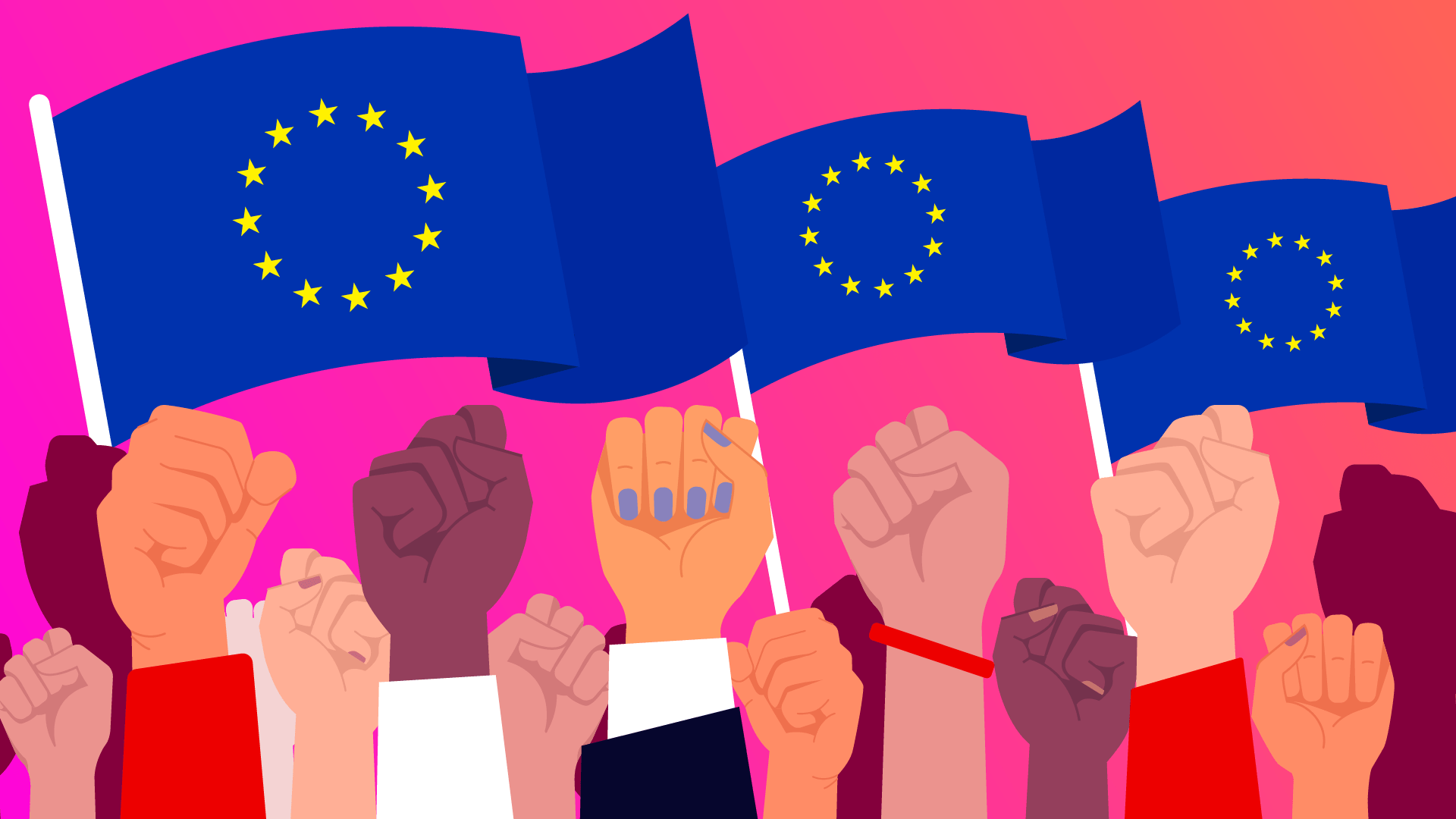
We took a leading role in the European Parliament's Declaration of a Climate Emergency in 2019, which was adopted by a large majority in the European Parliament.
We successfully fought for ambitious climate targets in the European Climate Law: the EU will need to become climate neutral by 2050 and cut 55% of its net greenhouse gas emissions by 2030.
As a way to support vulnerable citizens in the ecological transition, we succeeded in getting the European Parliament on board to create the Social Climate Fund, incorporating robust mechanisms for social justice and solidarity to mitigate costs for the most vulnerable in society. The financial support will benefit vulnerable households (by reducing the costs of insulation, or by giving access to renewable energy sources at home such as heat pumps or solar panels) and transport users as they switch to zero-emission forms of transports. The Social Climate Fund should provide up to €65 billion in EU funding over the period 2026-2032.
We built a progressive majority in the European Parliament to align key pillars of the Fit-for-55 strategy with the EU's 2030 climate goal of 55% emission cuts, incorporating specific provisions for a just transition. These key pillars include the Emissions Trading System (ETS), the Effort Sharing Regulation (ESR), the Land Use and Forestry Regulation (LULUCF), the CO2 emission standards for cars and vans regulation, the deployment of alternative fuels infrastructure regulation, as well as regulations on the energy performance of buildings, Energy Efficiency, and Renewable Energy Sources Directives.
We achieved an ambitious new Emissions Trading System (ETS), covering around 50% of all greenhouse gas emissions in the European Union. We managed to strengthen the 'polluter pays' principle through early phase out dates of free CO2 allowances for the industry (electricity and heat generation, energy-intensive industries), and to extend the scope of the new ETS to include the increasingly problematic maritime and aviation emissions.
To ensure a level playing field for European industries as they decarbonise, we put a price on the carbon emitted during the production of carbon-intensive goods entering the EU, and we promoted cleaner industrial production in non-EU countries. We thus enhanced the ambition of the Carbon Border Adjustment Mechanism regulation (CBAM) by broadening its scope, implementing a more centralised governance model, and ensuring a balanced yet ambitious phase-in of CBAM alongside the phase-out of free ETS allowances. Polluters will pay wherever they are, even outside the European Union.
The Carbon Border Adjustment Mechanism regulation (CBAM) is a landmark tool to put a fair price on the carbon emitted during the production of carbon intensive goods that are entering the EU, and to encourage cleaner industrial production in non-EU countries. The S&D succeeded in making CBAM more ambitious and future-proof by extending the scope, ensuring a more centralised governance model and ensuring the phase-in of CBAM/phase-out of free ETS allowances will happen in a balanced yet ambitious way.
We pushed hard to limit the use of fluorinated gases (F-gases) in the EU due to their very high greenhouse gas potential. These gases are up to 25,000 times more climate-damaging than CO2, hence their reduction is key to preventing the worsening effects of global warming and its devastating environmental and social impacts.
We successfully fought for a robust and high-quality network of alternative fuels infrastructure across the Union which we achieved through the Alternative Fuels Infrastructure Regulation (AFIR), establishing binding targets for member states, and making it purpose-fit, a crucial component in aligning the transport sector with the EU climate objectives. Additionally, through the FuelEU Maritime and RefuelEU Aviation regulations, the Union, thanks to our lead, is taking the crucial initial steps to promote alternative fuels in the maritime and aviation sectors. The S&D's efforts have been crucial in ensuring an acceptable level of ambition and improving the Commission's proposals.
We have worked relentlessly to incentivise more sustainable and energy-efficient transport modes, such as rail and inland waterway transport. The aim is to further accelerate the decarbonisation of the Union's transport system. Notably, we have secured a solid commitment to create more and better rail and waterborne transport connections and services in the revision of the Trans-European Transport network (TEN-T). This is fundamental for enabling more freight and passenger transports systems to shift from road to waterborne and rail.
We want to align EU legislation with the target laid down in the Paris Agreement to limit temperature rises to 1.5°C in order to avoid dramatic climate change impacts.
We want to protect all European societies and economies from the most dangerous effects of the climate crisis. Extreme weather events - such as floods, droughts, forest fires and heatwaves - are becoming more frequent and intense, further deteriorating our environment, destroying biodiversity and compromising our well-being and essential needs, such as food production. For this reason, we need the highest achievable 2030 climate target, in order to reach climate-neutrality by 2050. This is the best way to overcome the greatest threat facing humanity, and to support our economies in reaching this goal.
We want to ramp up the deployment of renewables and energy efficiency measures through ambitious energy targets for 2030, and convert them into binding national targets. Sustainable energy uptake is imperative, alongside the reduction in fossil fuel use, which is the main driver of global warming.
We are striving to guarantee the participation of all industrial sectors in achieving the EU 2030 climate target through the revision of the EU Emissions Trading System, which provides economic incentives to a wide range of highly polluting industries to reduce their greenhouse gas emissions.
We want to reduce our dependence on polluting energy sources, through the decarbonisation of our energy system, as well as more energy efficiency, and the phase-out of fossil fuel subsidies and other environmentally harmful subsidies. The transition away from fossil fuels towards renewable energy will not only benefit the climate, but also people’s health through reduced air pollution in cities.
We want to reduce greenhouse gas emissions in transportation while at the same time promote accessible and affordable mobility. This initiative must ensure that citizens have convenient and affordable access to intelligent and sustainable mobility solutions. Enhanced targets for zero-emission technologies and alternative fuels, along with the corresponding infrastructure is vital in order to decarbonise the transportation of passengers and goods effectively.
We want to leave no one behind in this transition, putting the focus on workers and the creation of quality jobs in areas impacted by increased climate ambition. We aim to address energy poverty by supporting vulnerable households through building renovation programmes. We need to support vulnerable transport users in the transition to zero-carbon mobility. We also need to support farmers, who are the hardest hit by the impact of climate change, and to help them in the transition to more sustainable, climate-friendly agricultural practices.
We want to implement green social protection schemes at the national level with EU support. The aim is to enhance social resilience to climate change impacts, and to prepare those communities affected by the ecological transition for a changing labour market.

